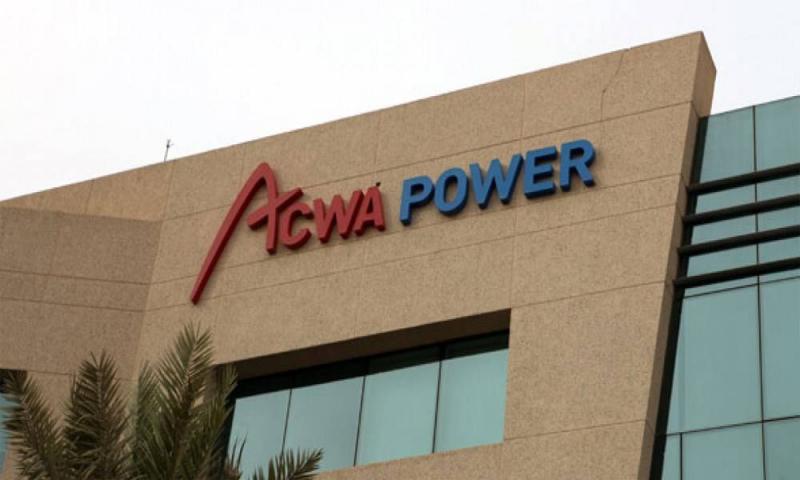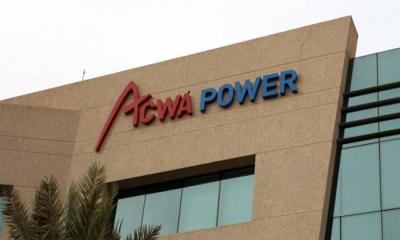A coalition comprising Acwa Power, the Gulf Investment Corporation, and Alternative Energy Projects Company has inaugurated the "Ibri 2" station, the first project within Oman’s renewable energy program under the independent producer concept. This is also the first solar power generation station connected to the national grid, and the coalition will produce renewable energy over 15 years for the Oman Power and Water Procurement Company.
"Ibri 2" marks a significant step towards achieving "Oman Vision 2040," which aims to generate 20% of energy demand from renewable sources by 2030 and up to 39% by 2040, while also protecting the country’s natural resources. This project represents a strong partnership between the public and private sectors and demonstrates the sultanate's ability to attract foreign direct investment within a clear and transparent legal, regulatory, and legislative framework, under the Electricity Sector Regulation and Privatisation Law, according to a statement issued yesterday.
With an investment of $417 million, "Ibri 2" is the largest renewable energy project at the utility and service level in Oman. The project has been developed on a build-own-operate basis, relying on photovoltaic solar technology to generate 500 megawatts of renewable energy. The project was completed in just 13 months following the highest health and safety standards, with 5 million work hours recorded without injuries, despite the challenges imposed by the pandemic, including border closures, supply chain disruptions, and workforce availability.
Mohammed Abunayyan, Chairman of Acwa Power, stated, "As a company leading the global transition, we are proud to play a key role in supporting energy transition goals under Oman Vision 2040. Since we entered the Omani market in 2011, we have contributed to attracting significant foreign investments because we believe in its vision and future. Together with our partners, the Gulf Investment Corporation and Alternative Energy Projects Company, we leveraged our strengths in investments, industry expertise, and technological knowledge to achieve the rapid and successful completion of the Ibri 2 project, despite the challenging conditions posed by the COVID-19 pandemic. I would like to take this opportunity to thank the Government of the Kingdom of Saudi Arabia for its ongoing support in developing and completing the project within record time."
He added, "As we look to the future, partnerships and solutions like those we provided at Ibri 2 will be crucial in addressing the climate change challenges facing the world, thereby ensuring a greener future."
At its peak production capacity, the project can generate enough electricity for approximately 50,000 homes and will contribute to reducing carbon dioxide emissions by 340,000 tons annually. In addition to providing clean energy efficiently to the national grid, the new project will offer tangible social and economic value, as well as consideration of local content, providing local graduates with training and employment opportunities.
As part of the supply chain necessary for the project, two emerging local companies—Taj Al Sharq and Diya Energy—were contracted to supply the mechanical installations for the project. Furthermore, the project’s operations and maintenance team achieved a local content rate of 100%.
Engineer Yaqoub bin Saif Al Kyoumi, CEO of the Oman Power and Water Procurement Company, indicated that this project aligns with the national priorities outlined in Oman Vision 2040, which include environmental preservation, resource utilization, regional development, and private sector involvement. Al Kyoumi added that this project will be a turning point for launching similar projects in renewable energy, as the company is currently developing two solar power generation stations in the Al Dhahirah governorate with a total capacity of 1,000 megawatts, in addition to wind energy projects in the North Al Sharqiyah and Al Dakhiliyah governorates.
For his part, Yahya bin Mohammed Al Rawahi, CEO of Shams Al Dhahira for Electricity Generation, expressed, "We see the Ibri 2 photovoltaic solar project as a tremendous achievement, and I am proud to be part of an exceptional Omani and international team that succeeded in achieving this accomplishment in a short period of just 13 months, at the height of the COVID-19 pandemic, along with the resulting disruptions in the global supply chain. The operation of the project stands as a testament to our capabilities in its execution; it is the largest photovoltaic solar power plant in my country, which also encompasses the most advanced technological solutions in the world. This calls for pride and honor in this achievement and our contribution to translating the aspirations for clean energy in Oman into reality."
The "Ibri 2" photovoltaic solar power station is located in the Al Dhahirah governorate, consisting of approximately 1.5 million bifacial solar panels, covering an area of 13 million square meters. It is worth noting that Acwa Power has been operating in Oman since 2011 and has invested more than $2.6 billion in the country over the past decade. In addition to this project, the company also has seven other projects either in operation or under development in the sultanate.




